Contents
This Day in History on 10 December
The historical events hold a lot of value for aspirants who are sitting for UPSC competitive exams including the IAS Exam.
On this page, we will list all historical events that occurred on 10 December. The students can refer to them while preparing for all competitive exams and banking exams.
Important Days
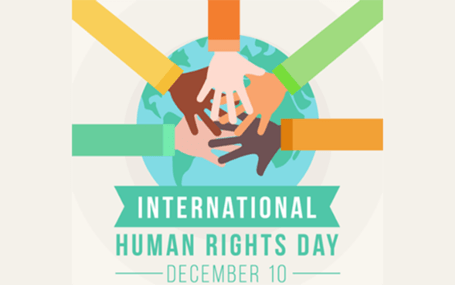
Human Rights Day (International)
On this day the United Nations (UN) adopted Universal Declaration of Human Rights in 1948 and ever since then on this date we observe Human Rights Day across the world. Human Rights Day outline the FUNDAMENTAL RIGHTS of all human beings that need to be protected universally.
Important Events
1582: France began to use the Gregorian calendar.
1868: The first traffic signals installed at the Palace of Westminster, London.
1887: Balkan military agreement signed between Austria, Hungary, Italy, and Britain.
1901: The first Nobel Prizes were awarded.
1902: Women granted the right to vote in Tasmania.
1902: Sir Ronald Ross was awarded the Nobel Prize for medicine for detecting the cause of Malaria.
1903: Pierre Curie and Marie Curie awarded the Nobel Prize for Physics.
1906: US President Theodore Roosevelt became the first American to win the Nobel Prize.
1978: Israeli President Menachem Begin and Syrian President Anwar Sadat jointly awarded the Nobel Peace Prize.
1878: Chakravarti Rajagopalachari, great social reformer, ardent patriot, incisive thinker and eminent literateur was born at Hosur in Tamil Nadu. He was the first Indian Governor General of independent India and popularly known as ‘Rajaji’.
1905: Robert Koch received the Nobel Prize for Medicine for his work on Tuberculosis.
1907: Rudyard Kipling, author of The Jungle Book' andKim’, received the Nobel prize for literature.
1913: The Nobel prize for literature was awarded this year to Rabindranath Tagore, the Bengali poet from India.
1918: Rowlatt Act introduced by Lord Chelmsford.
1932: The Indian Military Academy (IMA) was formally inaugurated by Field Marshal Sir Philip W Chetwode, Bt, GOB, KCMG, GCSI, DSO and was christened as “The Pioneers”. The crowning event was delivered in the hall, now named after him, and in the address to the trainees, he enunciated three principles: ‘the safety, honour, and welfare of your country comes first, always and everytime’, which were to guide the future officers of the Indian Army. A passage from this address has come to acquire immortality and has been adopted as the credo of the Academy.
1936: Duke of York succeeds King Edward as King George VI.
1936: England replaces King Edward VIII stamp series with King George VI.
1945: Aust Services lose third Victory Test Cricket to India by 6 wkts.
1948: Human Rights Day.
1952: World’s first official Family Planning programme launched in India.
1967: Earthquake hit Koyna Nagar.
1969: Norman Borlaug, the Iowa-born crop expert, whose research on new strains of high-yielding rice and wheat has led to a Green Revolution in developing countries, was awarded the Nobel peace prize today. Working at the International Maize and Wheat Improvement Center of Mexico since 1944, Borlaug, 56, has directed a team of agronomists working on the development of new crop plant strains that have allowed Third World farmers to multiply yields dramatically. His organization has trained farm technicians from 29 countries, including India, Pakistan and Turkey, enabling them to move steadily toward the goal of self-sufficiency in food production.
1978: Mother Teresa is awarded the Nobel Peace prize.
1979: Mother Teresa wins Nobel Peace prize.
1984: Justice Thakkar Commission appointed to enquire into the assassination of Indira Gandhi.
1985: A. M. Prasad was appointed as the Narcotics Commissioner of India. He headed this office till 30-04-1987.
1990: Dr. L. P. Barbosa, Goa CM, resigns following withdrawal of support by Maharashta Gomantak Party.
1990: The communal disturbances between Hindus and Muslims in Hyderabad claim more than 100 lives, and violence spreads to Aligarh and Kanpur also.
1992: The Central Government bans RSS, VHP, ISS, Bajrang Dal and Jamait-e-Islami.
1993: Kerala Congress(M) splits; Four MLAs, including Minister T.M.Jacob, expelled.
1993: The residence of Mahatma Phule was declared a national monument.
1996: Supreme Court bans employment of child labour in hazardous industries.
1997: Salman Haidar appointed India’s High Commissioner to Britain. He succeeded M. L. Singhvi.
1998: Dr. Gurudev S. Khush, rice breeder at the International Rice Research Institute, Philippines, and Dr. Sanjaya Rajaram, wheat breeder at the International Wheat and Maize Improvement Centre, Mexico, share the Rank Prize announced in London.
1998: Prof. Amartya Sen receives the 1998 Nobel Prize for Economics.
1998: Nobel Prize in Economics awarded to economist Amartya Sen.
1999: Dara Singh, the prime accused in the killing of Australian missionary, again gives a slip to police.
1999: Pranab Mukherjee and Jaipal Reddy are chosen outstanding parliamentarians for 1997 and 1998 respectively.
1999: Providing funding for terrorist activities, as per the United Nations Agreement for ending terrorism at the international level, declared an economic offense.
2000: Nawaz Sharif family was deported from Pakistan for ten years.
2002: United Airlines, America’s second-largest airline company, declared bankrupt.
2004: Anil Kumble became the first Indian to take the most wickets in Test cricket, surpassing Kapil Dev in the Dhaka Test.
2006: The death of former Chilean dictator General Augusto Pinochet in Santiago.
2013: Uruguay became the first country to legalize the development, sale, and use of drug marijuana.
2014: India’s Kailash Satyarthi and Pakistan’s Malala Yousafzai jointly awarded the Nobel Peace Prize.
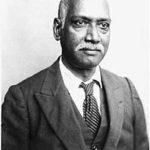
Birth/Birth Anniversary
1815: Ada Lovelace, an English mathematician, and writer.
1819: Dinkar Rao, an Indian Statesman.
1923: Madhav Gururao Kulkarni, great author and educationist, was born in Rani Bennur, Dharwar.
1830: Emily Elizabeth Dickinson, an American poet.
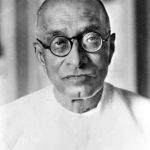
1860: Kano Jigoro, a Japanese educator and athlete, the founder of Judo.
1870: Sir Jadunath Sarkar, an Indian historian.
1878: C. Rajagopalachari, an Indian politician, independence activist, lawyer, writer, historian, and statesman. Last Governor-General of India.
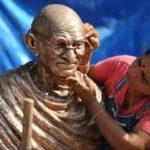
1878: Muhammad Ali Jauhar, an Indian Muslim activist, journalist, and poet.
1880: C. R. Reddy, an educationist, and political thinker.
1886: Rameshwari Nehru, social worker and freedom fighter, was born at Lahore.
1886: Ardeshir M. Irani, producer, director, exhibitor and founder of Star Films Ltd. Bombay, was born at Poona. His first film was ‘Veer Abhimanyu’.
1902: S. Nijalingappa, an Indian freedom fighter, politician, and former Chief Minister of Karnataka.
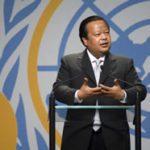
1908: Hasmukh Dhirajlal Sankalia, an Indian Sanskrit scholar, and archaeologist.
1948: Jasuben Shilpi, Indian sculptor (d. 2013)
1981: Aditi Avasthi, an Indian entrepreneur, and the founder and CEO of Embibe.
1995: Prem Rawat, Indian-American guru and educator
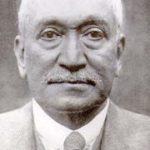
Death/ Death Anniversary
1896: Alfred Bernhard Nobel, a Swedish chemist, engineer, inventor, businessman, and philanthropist.
1920: Horace Dodge, an American automobile manufacturing pioneer, and co-founder of Dodge Brothers Company.

1953: Abdullah Yusuf Ali, a British-Indian barrister.
1857: Veer Narayan Singh organised a small group and had an encounter with British army. He was charged treason and sentenced to death. He was executed publicly.
1963: K. M. Panikkar, Indian historian and diplomat (b. 1894)
1989: Janardan Swami passed away.
1990: Armand Hammer, an American business manager, and owner.
2001: Ashok Kumar, Indian actor, singer, and producer (b. 1911)
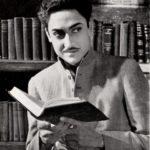
2006: General Augusto Pinochet, former Chilean dictator.
2013: Srikanta Wadiyar, Indian politician and the titular Maharaja of Mysore(b. 1946)

